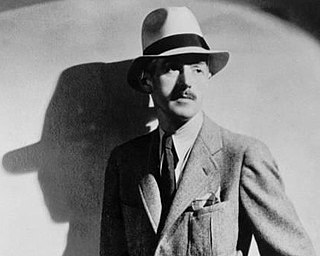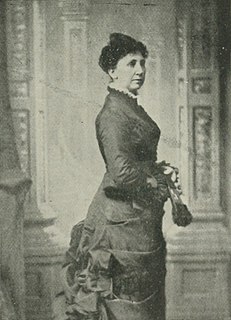A Quote by Dwight L. Moody
Dr. Bonar once said that he could tell when a Christian was growing. In proportion to his growth in grace he would elevate his Master, talk less of what he himself was doing, and become smaller and smaller in his own esteem, until, like the morning star, he faded away before the rising sun.
Related Quotes
A Christian should put away all defense and make no attempt to excuse himself either in his own eyes or before the Lord. Whoever defends himself will have himself for his defense, and he will have no other. But let him come defenseless before the Lord and he will have for his defender no less than God Himself.
(Five) thinkers since Galileo, each informing his successor of what discoveries his own lifetime had seen achieved, might have passed the torch of science into our hands as we sit here in this room. Indeed, for the matter of that, an audience much smaller than the present one, an audience of some 5 or 6 score people, if each person in it could speak for his own generation, would carry us away to the black unknown of the human species, to days without a document or monument to tell their tale.
Adam was in the dream, too; he traced the tangled pattern of ink with his finger. He said, "Scio quid hoc est." As he traced it further and further down on the bare skin of Ronan's back, Ronan himself disappeared entirely, and the tattoo got smaller and smaller. It was a Celtic knot the size of a wafer, and then Adam, who had become Kavinsky, said "Scio quid estis vos." He put the tattoo in his mouth and swallowed it. Ronan woke with a start, ashamed and euphoric. The euphoria wore off long before the shame did. He was never sleeping again.
I cross my arms. "It was a two minute conversation." "I don't think a smaller time frame makes it less unwise." He furrows his eyebrows and touches the corner of my bruised eye with his fingertips. My head jerks back, but he doesn't take his hand away. Instead he sighs. "You know, if you could just learn to attack first, you might do better." "Attack first?" I say. "How will that help?" "You're fast. If you can get a few good hits in before they know what's going on, you could win." He shrugs, and his hand falls.
Manlius ... took care in his invitations, actively sought to exclude from his circle crude and vulgar men like Caius Valerius. But they were all around; it was Manlius who lived in a dream world, and his bubble of civility was becoming smaller and smaller. Caius Valerius, powerful member of a powerful family, had never even heard of Plato. A hundred, even fifty years before, such an absurdity would have been inconceivable. Now it was surprising if such a man did know anything of philosophy, and even if it was explained, he would not wish to understand.
Samuel Spade's jaw was long and bony, his chin a jutting v under the more flexible v of
his mouth. His nostrils curved back to make another, smaller, v. His yellow-grey eyes were
horizontal. The V motif was picked up again by thickish brows rising outward from twin creases
above a hooked nose, and his pale brown hair grew down--from high flat temples--in a point on
his forehead. He looked rather pleasantly like a blond Satan.
The sun glistened on a drop of water as it fell from his hand to his knee. David wiped it off, but it left no tidemark: there was no more dirt to rub away. He took a deep breath and shivered. He was David. Everything else was washed away, the camp, its smell, its touch--and now he was David, his own master, free--free as long as he could remain so.
One of the most gracious dispensations of God concerning His saints is their lovely unawareness of sanctity. The nearer they move to Him, the more conscious are they of sin. If it were impossible at times not to note their own growth in grace, it were impossible also to forget that it was all by His power. If they could be persuaded to admit their progress and talk of it at all, the language of their heart would be this: 'If God could do this in me, He could do it in anyone
Our forefather Adam... used his freedom to turn toward what was worse and to direct his desire away from what had been permitted to what was forbidden. It was in his power 'to be united to the Lord and become one spirit with God...' (I Cor. 6:15). But Adam was deceived and chose to cut himself off voluntarily from God's happy end for him, preferring by his own free choice to be drawn down to the earth (cf. Gen. 2:17) than to become God by grace.
In His discourses, His miracles, His parables, His sufferings, His resurrection, He gradually raises the pedestal of His humanity before the world, but under a cover, until the shaft reaches from the grave to the heavens, whenHe lifts the curtain, and displays the figure of a man on a throne, for the worship of the universe; and clothing His church with His own power, He authorizes it to baptize and to preach remission of sins in His own name.
Today the manliest man would be ashamed to look into the eyes of the woman by his side and tell her that he is the master because he could knock her down with perfect ease, and break her bones with much greater facility than she could his. And yet, out of man's brute nature, out of that most ignoble in himself, has come his loudest assumption of superiority, his longest and lowest tyranny.
Kisten, please don't leave me," I begged, and his eyes opened. "I'm cold," he said, fear rising in his blue eyes. I held him tighter. "I'm holding you. It's going to be okay." "Tell Ivy," he said with a gasp, clenching in on himself. "Tell Ivy that it wasn't her fault. And tell her that at the end... you remember love. I don't think... we lose our souls... at all. I think God keeps them for us until we... come home. I love you, Rachel." "I love you, too, Kisten," I sobbed, and as I watched, his eyes, memorizing my face, silvered, and he died.




































